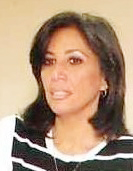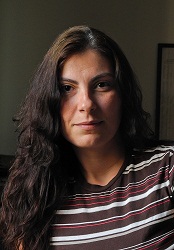By Khalil Al-Anani
The new boogeyman of Egyptian politics is Salafism.
A false assumption has been fabricated by Egypt’s liberal and secular currents who tend to exclude Islamists, particularly Salafis, from the new political scene in Egypt. Last Friday’s mass demonstration in Tahrir Square, which was led by Islamist groups and dominated by Salafis, has proven how intolerant and prejudiced are the new political forces in Egypt post-Mubarak. These forces have not only rejected Salafis right to share the symbolism of Tahrir Square as a venue for protest, but also sought to demonize them as a “regressive and conservative current that seek to destroy the revolution and build a new dictatorship.”
Many liberals and secularists, instead of tolerating the long-repressed Islamists and seeking to normalize relations with them, have attacked Salafis for raising religious slogans in Tahrir while others boycotted the demonstration and left Tahrir in an objection to its “Islamization”.
The political surge of Salafism in the wake of the Egyptian revolt signifies how much Egypt has changed, yet it also shows to what extent the “newcomers” to the political arena are not welcomed.
True, the overwhelming presence of Salafis, who evaded the revolution from the very beginning, is relatively annoying and sometimes disconcerting, but it should not be an excuse for intimidating and excluding them.
It is not particularly striking that Salafis raised the conventional Islamic slogans (Islamyyia, Islamyyia) asserting what they believe Egypt should become, or calling for the implementation of Sharia. Apart from the fact that this should have been expected, we should also respect it as freedom of speech.
What’s really striking, and almost frustrating, is how some liberals and secularists replicate the same scarecrow rhetoric created by Mubarak to exclude Islamists and discredit them.
Such Salafobia obscures the significant transformations that have taken place within the Salafi currents.
First, since the fall of Mubarak three political parties, Al-Nour (the Light), Al-Fadilah (Virtue), and Al-Asala (Authentcity) have emerged from the Salafi current. So far, they adopt democratic and moderate political views and have announced their willingness to build alliances with secular and liberal currents. More importantly, these parties do not espouse violence as a political means.
Secondly, as the Salafi bloc is not a monolithic entity, many new leaders are inclined to cooperate and engage in open dialogue with secular and liberal forces. True, some Salafi Sheikhs embrace a hostile stance towards democracy and secular parties, but the young Salafi generation is more moderate and pragmatic.
Most significantly, the Salafi currents are now moving towards politicization. However, by excluding and humiliating them, theses attempts will be aborted and will quash any attempts to draw Salafism away from the ideological peripheries towards the political center.
If this happens accurately and smoothly it may signal the end of the ultraorthodox nature of Salafism in Egypt.
Khalil Al-Anani is a scholar at School of Government and International Affairs, Durham University. His email is: [email protected]

